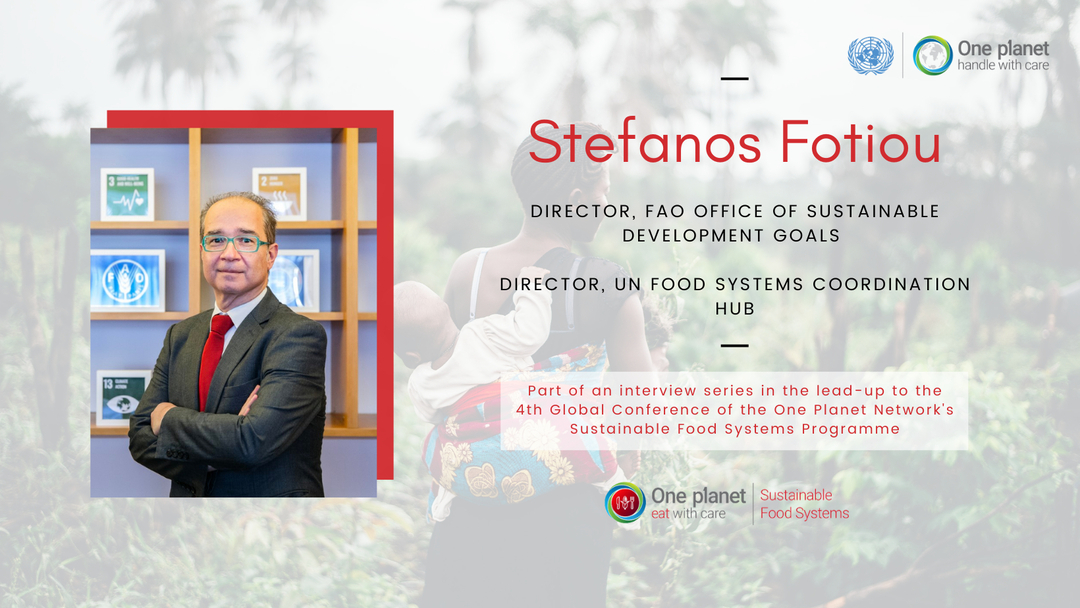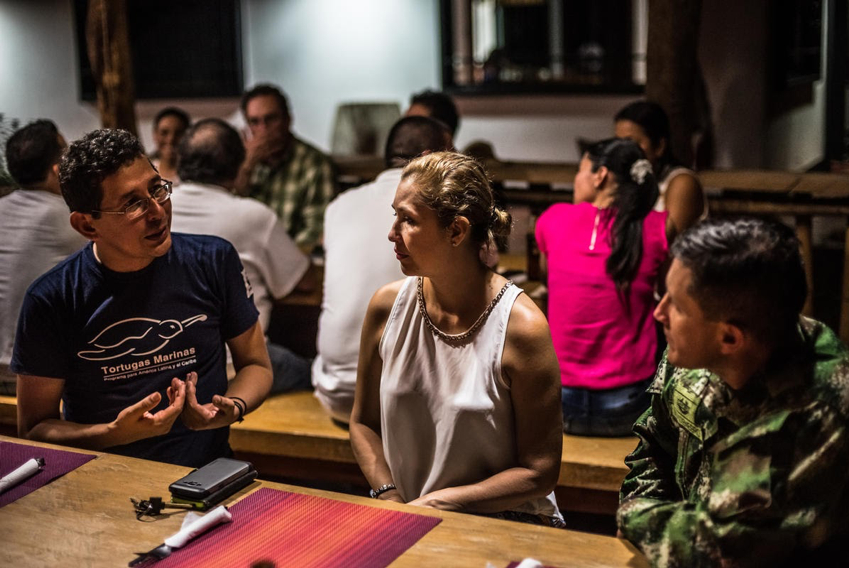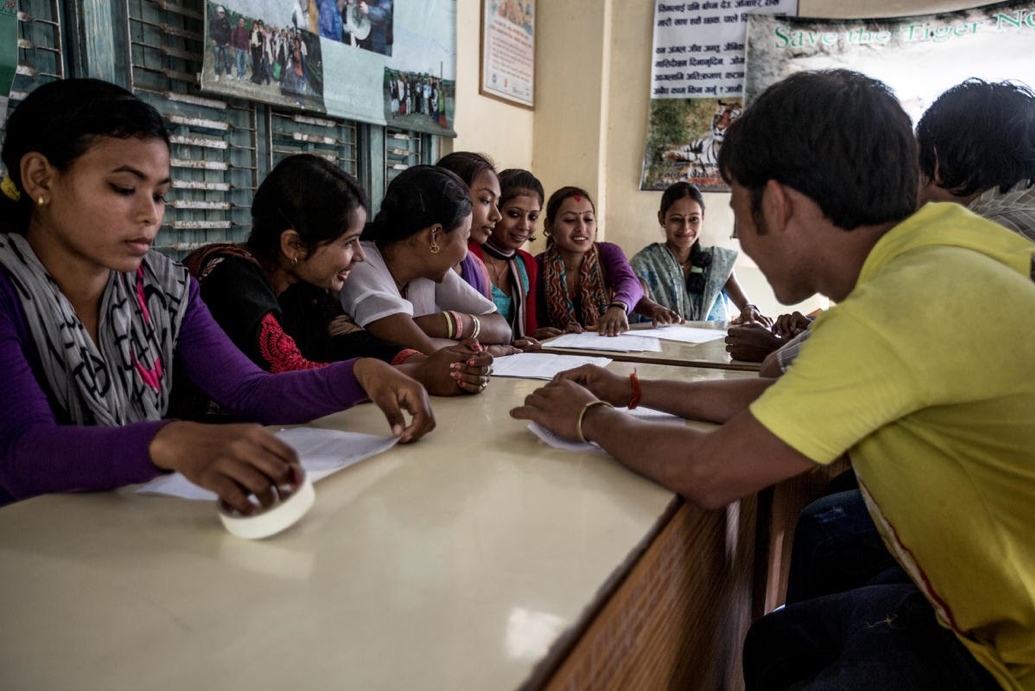November 25, 2025 | 15:04 GMT +7
November 25, 2025 | 15:04 GMT +7
Hotline: 0913.378.918
November 25, 2025 | 15:04 GMT +7
Hotline: 0913.378.918
Before the 4th Global Conference of the One Planet Network Sustainable Food Systems programme, many FAO experts expressed their views. They offered some solutions to develop food systems in countries and regions worldwide.
Vietnam Agriculture Newspaper would like to introduce the One Planet network interview with Mr. Stefanos Fotiou, Director of FAO's Office of Sustainable Development Goals (SDGs), on multilateral cooperation in sustainable development.

FAO expert - Mr. Stefanos Fotiou has decades of experience in food systems.
How do you assess the possibility of international cooperation today?
I believe multilateralism is the only way to solve systemic problems effectively. Unfortunately, we are all falling short of our commitments to sustainability, and virtually all forms of malnutrition are on the rise. Most sustainability goals are not on track.
Indeed, no country can alone promote a sustainable food system. As a result, the United Nations system remains the most valuable space for global cooperation, providing equal opportunity for all countries to voice concerns. Global lobbying within international organizations remains a powerful way to push governments to act for a more sustainable future while pressuring businesses to negotiate.
The future of international cooperation on food systems: what are the key obstacles? What needs to change so that countries can fulfil the critical food-related SDGs?
I am “realistically optimistic” about international cooperation on food systems. Not only because it is the most impactful area that can be a powerful synergistic SDG accelerator, but also because we see steps towards food systems transformation from many countries.
I will admit most of them are baby steps, but there is a movement. The path toward transformation is clear. There is no need to reinvent the wheel; we all know what must be done.
First, food must be perceived beyond a commodity to be seen as a public good. Many other “systems” must work if we want resilient food systems. The example of healthy ecosystems is one of the most symbolic ones. To cite a few challenges, the climate crisis, pollution, and biodiversity loss pose significant risks for the future of food, especially when considering the growing population.
By 2050, we not only need to feed around 10 billion mouths, but we also must ensure that we nourish them. I am enthusiastic about the work we do at the UN Food Systems Coordination Hub as we connect the dots to ensure that we can track our progress and inspire more and more countries to act.

Multilateral cooperation is a useful measure to make it easier for countries to achieve sustainable development goals. Photo: WWF.
The trend of rising food prices is taking place as food sector companies are cashing in record, unprecedented profits. What measures can correct these critical issues, which are causing increased poverty and rising hunger and malnutrition? Should Food Systems National Pathways be revisited to include this new challenge and define roadmaps to overcome it?
The Right to Food is a human right. As in other sectors, it is not the first time we see corporations earning unprecedented profits while the most vulnerable struggle to survive and inequality rises. This is why international regulation and accountability must be part of the change menu.
We encourage countries to design and implement National Pathways responsive to rights and power dynamics within societies. Reaching those further behind must be a priority for every country. With the right partnerships and accountability frameworks, the private sector activity can become the largest accelerator for the SDGs.
Do you think that the 4th Global Conference of the Sustainable Food Systems Programme is in line with the objective set by the global strategy? What can and should we expect from this conference?
We are also truly enthusiastic about the upcoming conference in Viet Nam. Our goal is to move from challenges to solutions. In this conference, we need to shift focus from the “why” in order to bring forward the “how” food systems transformation can happen at the national level. With partners, the Hub is proud to lead a session hosting National Food Systems Convenors.
We value genuine exchange, and we are convinced that this session will help all of us engaged in this agenda to learn from countries how best to co-create solutions. While we want to exercise “deep listening”, we are also strengthening science-policy interfaces to support evidence-based decision-making. The recent establishment of the Scientific Advisory Committee (SAC) of the Hub exemplifies this effort.
The 4th Global Conference on Food Systems is a promising space to engage global actors raising the ambition and preparedness for the first-ever UN Food Systems Stocktaking Moment on 24-26 July in Rome. We are eager to share the recommendations from this conference in our event in July, where countries will be invited to present their progress on food systems solutions voluntarily.

In many parts of the world, gender inequality has not been properly addressed. Photo: WWF.
What needs to be done to address the gender gap issue related to sustainable consumption and production patterns, especially with relation to the objective of setting up sustainable food systems?
Addressing rising and historical inequalities is fundamental for long-term solutions. It is unacceptable that in 2023, with all the available knowledge, we still must fight for equal rights for girls and women. Disparities in land tenure rights are one important example of leaving women behind in rural areas.
More countries must have gender-disaggregated data when measuring SDGs’ progress. This remains a noticeable gap. Unequal social norms have allowed women to carry disproportionate labor and care burdens. The COVID-19 pandemic tragically spotlighted this. In food systems, it is no different. Solutions that do not work for women are fake solutions. Research has progressively proven that women are drivers of positive change.
We are working with coalitions, helping countries ensure that their national pathways offer gender-transformative policies related to the transformation of food systems. All stakeholders should be part of this conversation.
Stefanos Fotiou is an accomplished expert on sustainable development currently serving as Director, Office of Sustainable Development Goals in FAO; under this capacity he is also serving as Director of the UN Food Systems Coordination Hub. Prior to joining FAO, Stefanos served 16 years in the UN Secretariat, including 6 years as Director in the Environment and Development Division of the UNESCAP as well as 10 years in the UNEP.
Before joining the UN, he had worked for the private sector and academia on issues of regional sustainable development. Throughout his career, Stefanos has taken leading roles in serving international UN fora and platforms, has conceptualised and led the development of regional and national strategies on sustainable development and his work has been published and referenced. He holds a PhD in Natural Resource Economics, a Master of Science in Forestry and Natural Environment and a Master of Science in Information Systems.

(VAN) In addition to strengthening the relationship between schools and enterprises, the Aus4Skills project expands opportunities for female students and people with disabilities to work in the transport and logistics sector.

(VAN) Nghe An is preparing policy, technical, and resource steps to participate in the forest carbon credit market.
/2025/11/25/1648-2-110733_532.jpg)
(VAN) From 2011 to 2023, Ca Mau province lost approximately 6,200 ha of coastal land and protection forests due to erosion, threatening many residential areas, infrastructure facilities, and production zones.

(VAN) Quang Ngai holds strong potential for carbon credits but needs a clear legal and policy framework to secure sustainable revenue from this resource.

(VAN) With its diverse ecosystem, Phu Quoc National Park plays a vital role in environmental protection and biodiversity conservation and serves as the core zone of the Kien Giang World Biosphere Reserve.

(VAN) Cooperation activities under the Aus4Skills program focus on: logistics professional development, competency-based training and assessment (CBTA), leadership innovation, and digitalization.

(VAN) Minister Tran Duc Thang has affirmed that the models developed by Que Lam Group serve as a practical foundation for the Ministry of Agriculture and Environment to direct wide-scale replication.